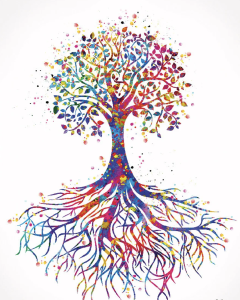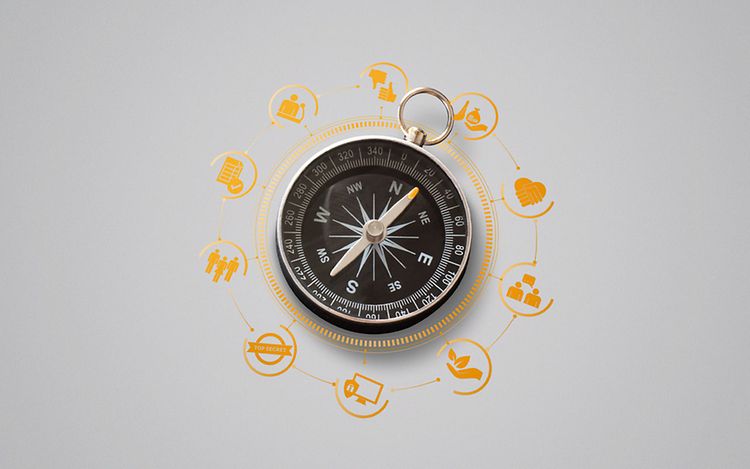 Last week I shared a little of my yearly review experience, and in particular, how I find myself gearing up for a more open 2022. Certainly, reports and editorials in the press are encouraging us to think of a transition from pandemic to endemic (at least in the UK – spin or reality, we will see). Personally, I am raising my gaze: from what has been a predominant focus inward to one that is not only outward (to the world) but with a further scope. How can I be of service to others? How may I, with particular experience and capabilities, help other transition into a post-pandemic world?
Last week I shared a little of my yearly review experience, and in particular, how I find myself gearing up for a more open 2022. Certainly, reports and editorials in the press are encouraging us to think of a transition from pandemic to endemic (at least in the UK – spin or reality, we will see). Personally, I am raising my gaze: from what has been a predominant focus inward to one that is not only outward (to the world) but with a further scope. How can I be of service to others? How may I, with particular experience and capabilities, help other transition into a post-pandemic world?
Back in 2019 I took the vow to become a bodhisattva. This is the Buddhist equivalent of being a warrior – but this being the ‘fight’ to bring all beings to a realisation of their awakened nature. I take this view into my work as a therapist and as an educator of trainee counsellors and psychotherapists. In both scenarios, my main intention is to help the client / student access their inherent wisdom (or what Chogyam Trungpa calls ‘brilliant sanity’) despite the challenge or lack of confidence that may be obscuring it.
It is said that the highest aspiration of the bodhisattva is ‘to equalise self and other’: to recognise the interdependence of all beings, the ‘inter-being’ and how we are all connected. In reflecting upon these past 22 months, I have come to see what a challenge this has been for me. There have been times, especially early on in the pandemic, when I haven’t felt safe enough, confident enough to do anything other than close down, lock down and keep my focus on loved ones. It is relatively easy to wish our loved ones “may you be safe, healthy, happy, and live with ease” but especially in times where our own survival fees threatened, extending that wish to ALL beings is hard.
When the Buddhist refugee* takes on the next vow to become a bodhisattva, they are given very thorough and practical guidelines on how to extend these wishes to all…without any exceptions! I’ve written about the paramitas (or six perfections) before, shortly after I got married and how these practices formed the basis of our marriage vows. Back then, we were inspired by Buddhist teacher Susan Piver – and again I recall Susan because it is her ‘year end review’ process I have used for the past decade, and this time around I am motivated to deepen my practice of the paramitas across all domains of my life as we move into 2022.
In one section of the review, Susan invites a reflection on “what are your five rules for living in the coming year?”. Using the paramitas as my frame extends this to six: for me, to live with integrity as a bodhisattva is to have the key values of generosity, discipline, patience, diligence, meditation and wisdom. Over the Twixmas period, my wife and I sat a 3 day online retreat. This was a perfect backdrop to reflecting on how to integrate the paramitas into my life. The theme was ‘fear and fearlessness’, one that I have studied before in these pandemic times with the retreat teacher Peter Conradi. For reasons that might become clear as you read on, this has highlighted the paramita of ‘generosity’ for me.
 Conventional generosity is defined as the willingness to give or to share, and ordinarily we tend to first think of giving material things or resources such as our time. This is a part of the paramita of generosity – but much of what I value in the Buddhist framing is what makes the paramitas ‘perfections’ or ‘transcendent’: how do we go beyond? What takes us from our confused being and toward our inherent, brilliant sanity? Some of the distinction between ordinary and transcendent generosity is the attitude from which we practice this action – we are encouraged to feel our own richness from where we give. This is not a check or calculation “do I have enough to give x, y, z” but rather confidence in our inner richness; or in other words, connecting to our inherent basic goodness, our brilliant sanity, our buddha-nature. With this depth of trust in our basic being, we can reach out further – consider how deeper roots help a tree extend its branches out.
Conventional generosity is defined as the willingness to give or to share, and ordinarily we tend to first think of giving material things or resources such as our time. This is a part of the paramita of generosity – but much of what I value in the Buddhist framing is what makes the paramitas ‘perfections’ or ‘transcendent’: how do we go beyond? What takes us from our confused being and toward our inherent, brilliant sanity? Some of the distinction between ordinary and transcendent generosity is the attitude from which we practice this action – we are encouraged to feel our own richness from where we give. This is not a check or calculation “do I have enough to give x, y, z” but rather confidence in our inner richness; or in other words, connecting to our inherent basic goodness, our brilliant sanity, our buddha-nature. With this depth of trust in our basic being, we can reach out further – consider how deeper roots help a tree extend its branches out.
Generosity’s transcendent quality also comes from its three aspects:
- The gift of resources (so, conventional generosity)
- The gift of fearlessness (which is one contemplation on the Twixmas retreat)
- The gift of the dharma (facilitating the exploration of the Buddhist teachings and practices)
When I took the bodhisattva vow in 2019, I was given the name “Champe Sampa”, or “Bridge of maitri”; and I contemplated what this meant to me for some time after. In recalling my role as a ‘bridge’ and bringing this alongside my aspiration to be of service in 2022, where I see the opportunity for me to practice the paramita of generosity is becoming clearer.
- In considering resources I may offer, I am motivated to invest time and to offer what knowledge I have attained along my path of study and practice as therapist, as Buddhist. I am therefore making a deeper commitment to my writing on this blog so I can share some of my experiences to an audience beyond those clients and trainees I come in direct contact with.
- Fearlessness is not the absence of fear but rather meeting fear that arises with an open and tender heart. This is a journey I am deeply engaged with, and I wish to offer my experiences to other would-be-warriors. I see how I can support the trainee counsellors and psychotherapists I work with to not shy away from their humanness and in fact to find the richness in being exactly who they are; and to resist the temptation to do therapy on clients. By becoming less ashamed of our vulnerabilities we can invite others to do the same.
- And finally, I am motivated to explore more avenues through which I can offer the dharma. This blog is one medium. Another is the book I am currently completing that seeks to help therapists integrate Buddhist and spiritual ideas into their work. I have also been considering how I might re-connect with my teaching of meditation – I see much value (and need) for this practice as we re-emerge post-pandemic.
*the first vow one takes to enter the Buddhist path

